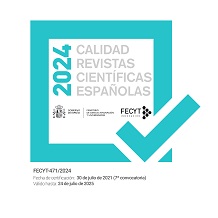Conceptions and practices of adolescent self-care: qualitative recordings in personal diaries
Abstract
Objective: To know the concept and practices of self-care among school-aged adolescents in the context of the COVID-19 pandemic.
Method: This qualitative study used COREQ guidelines to construct the report. Seventeen adolescents participated, and data collection occurred through the personal diary technique. The data were submitted to thematic analysis.
Results: The participants described the self-care phenomenon according to antecedents, attributes, and consequences of the pandemic. Conceptions of self-care and health often went beyond care needs for survival. Self-care behaviors among adolescents were noted to be multidimensional, with influences from individual, relational, and systemic levels and mediated by existential contexts. Experiences of self-care deficits were also recorded.
Final considerations: The results may offer subsidies for support models for health professionals to stimulate adolescent self-care.
Downloads
-
Abstract920
-
PDF (Español (España))1187
-
PDF (Português )1187
-
PDF1187
References
Oliveira WA, Silva JLD, Andrade ALM, Micheli D, Carlos DM, Silva MAI. Adolescents' health in times of COVID-19: a scoping review. Cad Saude Publica. 2020;36(8):e00150020. doi:10.1590/0102-311x00150020
Oliveira WA, Silva JL, Andrade ALM, Micheli D, Fernández JER, Dellazzana-Zanon LL, Silva MAI, Santos MA. Adolescence in times of pandemic: Integrating consensus into a concept map. Estud. psicol. (Natal). 2020;25(2):133-143. doi:10.22491/1678-4669.20200014
Cardoso EAO, Freitas IS, Santos JHC, Oliveira WA, Garcia JT, Santos MA. Chronic diseases and religiosity/spirituality during the early stages of the COVID-19 pandemic. Estud. psicol. (Campinas) 2022;39:e150020. doi:10.1590/0102-311x00150020.
Martínez N, Connelly CD, Pérez A, Calero P. Self-care: A concept analysis. Int J Nurs Sci. 2021;8(4):418-425. doi:10.1016/j.ijnss.2021.08.007
Tanaka M. Orem's nursing self-care deficit theory: A theoretical analysis focusing on its philosophical and sociological foundation. Nurs Forum. 2022;57(3):480-485. doi:10.1111/nuf.12696
Masoumi M, Shahhosseini Z. Self-care challenges in adolescents: a comprehensive literature review. Int J Adolesc Med Health. 2017;31(2). doi:10.1515/ijamh-2016-0152
O'Brien RP, Parra LA, Cederbaum JA. “Trying my best”: sexual minority adolescents' self-care during the COVID-19 Pandemic. J Adolesc Health. 2021;68(6):1053-1058. doi:10.1016/j.jadohealth.2021.03.013
Jiang X, Walker K, Topps AK. A systematic review of self-care measures for adolescents with health needs. Qual Life Res. 2021;30(4):967-981. doi:10.1007/s11136-020-02685-1
Disabato DJ, Aurora P, Sidney PG, Taber JM, Thompson CA, Coifman KG. Self-care behaviors and affect during the early stages of the COVID-19 pandemic. Health Psychol. 2022;41(11):833-842. doi:10.1037/hea0001239
Freedland KE, Dew MA, Sarwer DB, et al. Health psychology in the time of COVID-19. Health Psychol. 2020;39(12):1021-1025. doi:10.1037/hea0001049
Souza VRS, Marziale MHP, Silva GTR, Nascimento PL. Translation and validation into Brazilian Portuguese and assessment of the COREQ checklist. Acta Paul Enferm. 2021;34:eAPE02631. doi:10.37689/acta-ape/2021AO02631
Pinheiro JQ, Elali GA, Azevedo AVM, Farias BCG, Costa MC, Andrade SS. Diário pessoal como técnica de coleta de dados em estudos sobre relações pessoa-ambiente. In Pinheiro JQ, Hartmut G (Orgs.), Métodos de pesquisa nos estudos pessoa-ambiente. São Paulo: Casa do Psicólogo; 2008. 281-312p.
Byrne D. A worked example of Braun and Clarke’s approach to reflexive thematic analysis. Qual Quant. 2022;56:1391-1412. doi:10.1007/s11135-021-01182-y
Jaarsma T, Riegel B, Strömberg A. Reporting on self-care in research studies: Guidance to improve knowledge building. European Journal of Cardiovascular Nursing. 2017;16(5):364-365. doi:10.1177/1474515117691893
Fernandes LTB, Nóbrega VMD, Silva MEA, Machado AN, Collet N. Supported self-care for children and adolescents with chronic disease and their families. Rev Bras Enferm. 2017;70(6):1318-1329. doi:10.1590/0034-7167-2016-0553
LeBlanc RG, Chiodo L, Jacelon CS. Social relationship influence on self-care and health among older people living with long term conditions: A mixed-methods study. Int J Older People Nurs. 2022;17(4):e12450. doi:10.1111/opn.12450
Jiang X, Walker K, Topps AK. A systematic review of self-care measures for adolescents with health needs. Qual Life Res. 2021;30(4):967-981. doi:10.1007/s11136-020-02685-1
Town R, Hayes D, Fonagy P, Stapley E. Self-management, self-care, and self-help in adolescents with emotional problems: a scoping review protocol. JBI Evid Synth. 2021;19(9):2373-2381. doi:10.11124/JBIES-20-00224
Santos RR, Garrocho Junior NM, Martins AM, Modena CM. Gênero e práticas de saúde: singularidades do autocuidado entre adolescentes. Rev. Psicol. Saúde. 2017;9(1):37-57. doi:10.20435/pssa.v9i1.463.
Barbiani R, Schaefer R, Cezar Leal SM, Dalla-Nora CR, Lui L, Cardoso de Paula C, Cremonese L, Barreto CN, Oliveira MC, Viegas K, Farias ER. Atenção à saúde de adolescentes no Brasil: scoping review. Rev. latinoam. cienc. soc. niñez juv. 2020;18(3):179-204. doi:10.11600/1692715x.18308
The works published in this magazine are subject to the following terms:
1. The Publications Service of the University of Murcia (the publisher) preserves the copyright of the published works, and encourages and allows the reuse of the works under the license for use stated in point 2.
© Servicio de Publicaciones, Universidad de Murcia, 2011 (© Publications Service, University of Murcia, 2011)
2. The works are published in the electronic edition of the journal under Creative Commons Reconocimiento-NoComercial-SinObraDerivada 3.0 España(texto legal) “ a Attribution-NonCommercial-NoDerivatives 3.0 Spain license (legal text)”. They can be copied, used, broadcasted, transmitted and publicly displayed, provided that: i) the authorship and original source of their publication (journal, publisher and URL) are cited; (ii) are not used for commercial purposes; iii) the existence and specifications of this license is mentioned.
3. Conditions of self-archiving. Authors are allowed and encouraged to electronically disseminate the pre-print (pre-reviewed ) and / or post-print (reviewed and accepted for publication) versions of their works prior to publication, as it ensures a wider circulation and dissemination which may lead to a possible increase in its mention and a higher scope among the academic community. RoMEO color: green.












